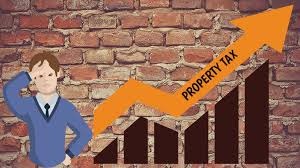The Pune Cantonment Board (PCB) has hiked the property tax of residential and commercial properties by around 5% and 10% respectively.
The board is authorised to revise the tax once every three years. The last revision was carried out in 2014. Ideally, the PCB ought to have revised the rates in 2017, but it did not do so due to administrative reasons.
The board has sent property tax bills calculating arrears of the last three years (2017-2020) to the property owners. Notices have also been sent to the property owners, seeking their views on the revised bills a few weeks ago.
“We have so far received around 600 feedbacks from residents. As per the procedure, we have issued a notice regarding public hearing, which will start from November 15 at the board office,” said chief executive officer (CEO) Amit Kumar, adding that currently the board earns around Rs 27 crore annually from property tax. The board now expects to earn Rs 30 crore.
“During the hearing, the residents can present their property tax documents and voice their concerns. If there is any miscalculation or error in our records, it will be rectified there itself,” he said.
“Besides, our officials will verify each claim or objection made by an individual before finalising the rates,” said Kumar. According to board records, there are 11,292 properties in PCM limits.
“During the survey, some violations regarding illegal use of residential spaces for commercial purposes have been noticed by revenue officials. Legal notices have been issued to those indulging in such practices,” said a revenue department official.
“We fail to understand the board’s policy in the last two years as it has increased all types of taxes. It has already increased vehicle entry tax, parking charges and, now, the property tax too,” said Sanjay Kawade, an activist from Ghorpadi.
Lawyer-activist Netraprakash Bhog said that the board does not have a long-term vision. “When the board was earning high taxes in the past, why didn’t it create income generating sources? Now, it is literally running after the common man and charging money forcefully?” he said.



